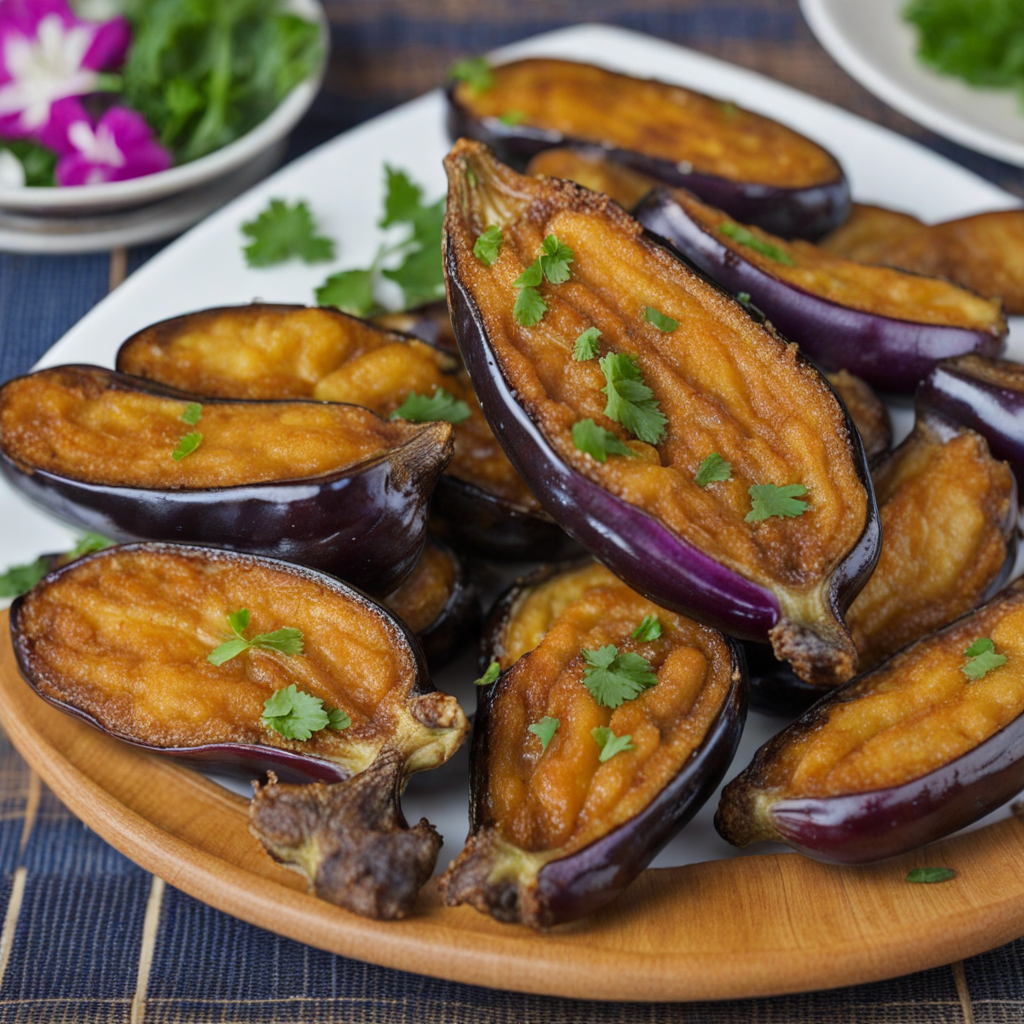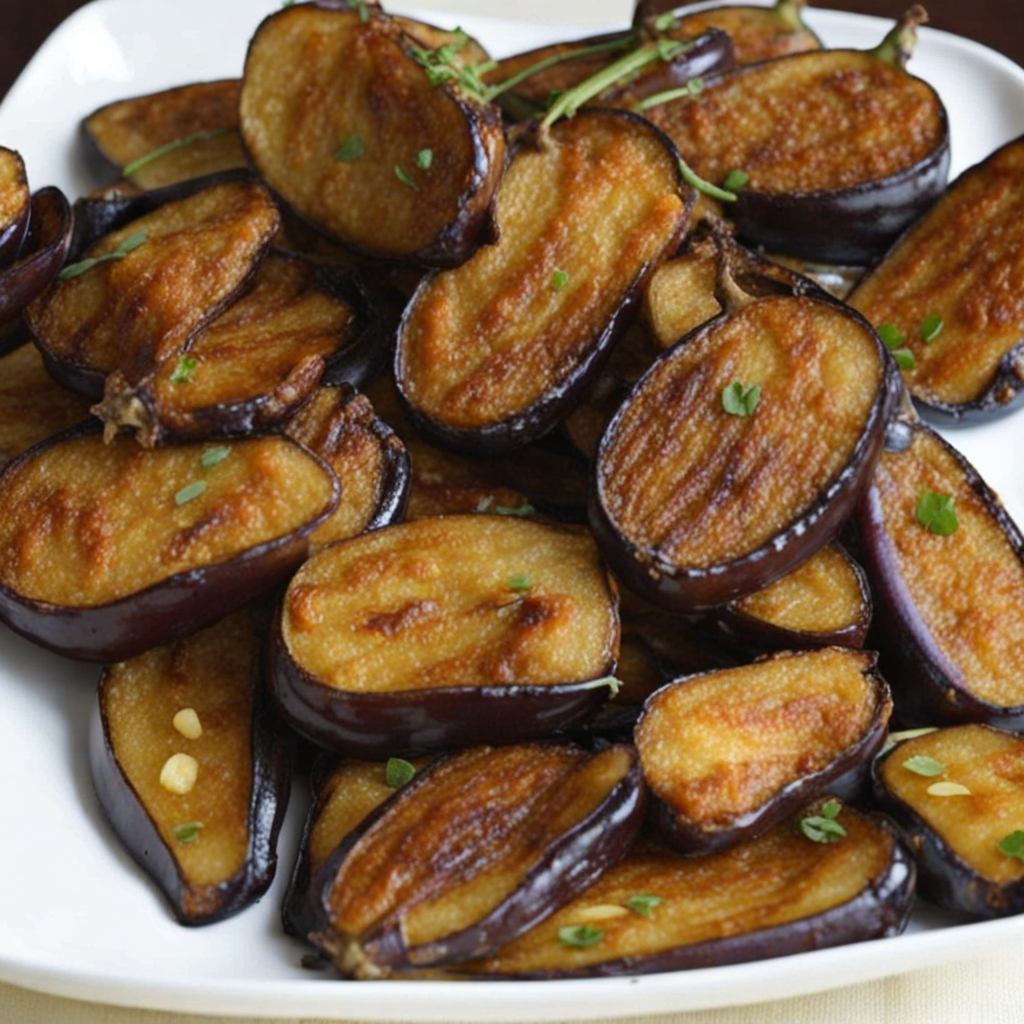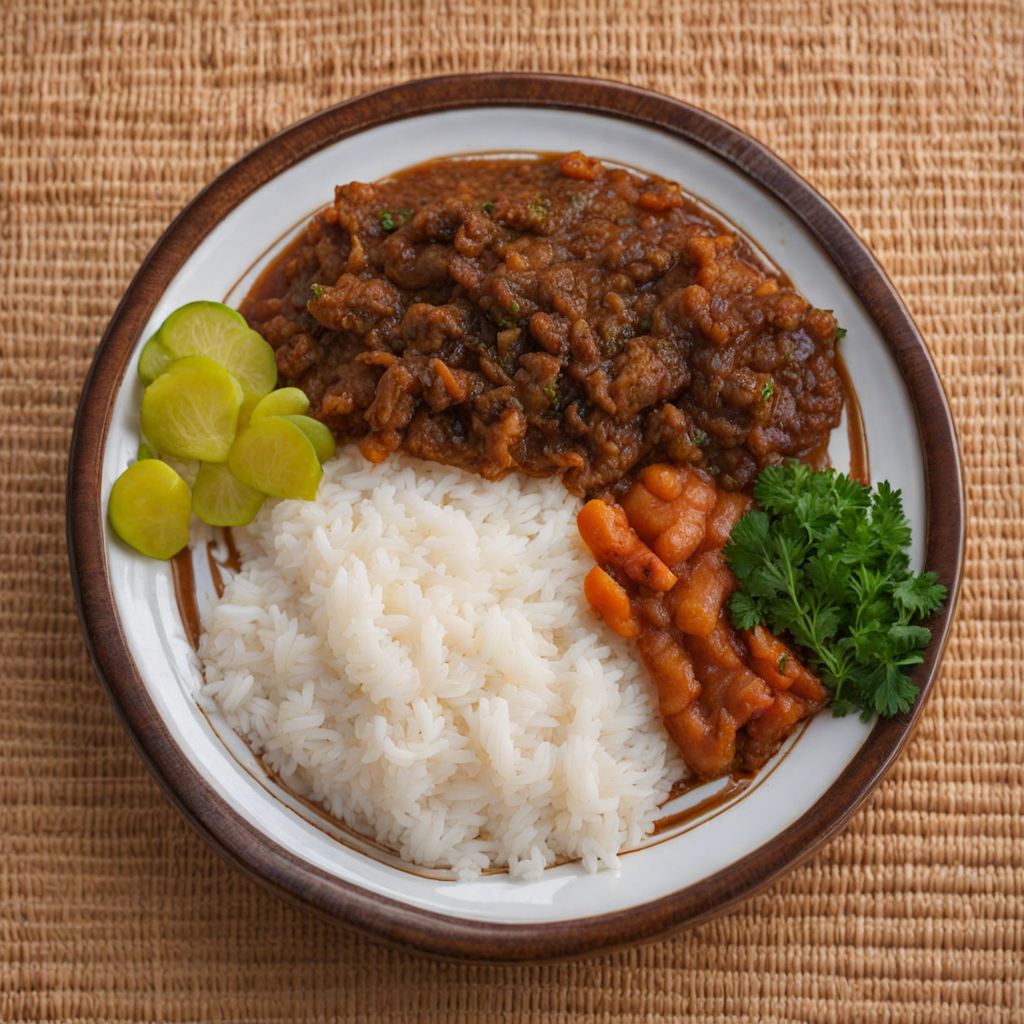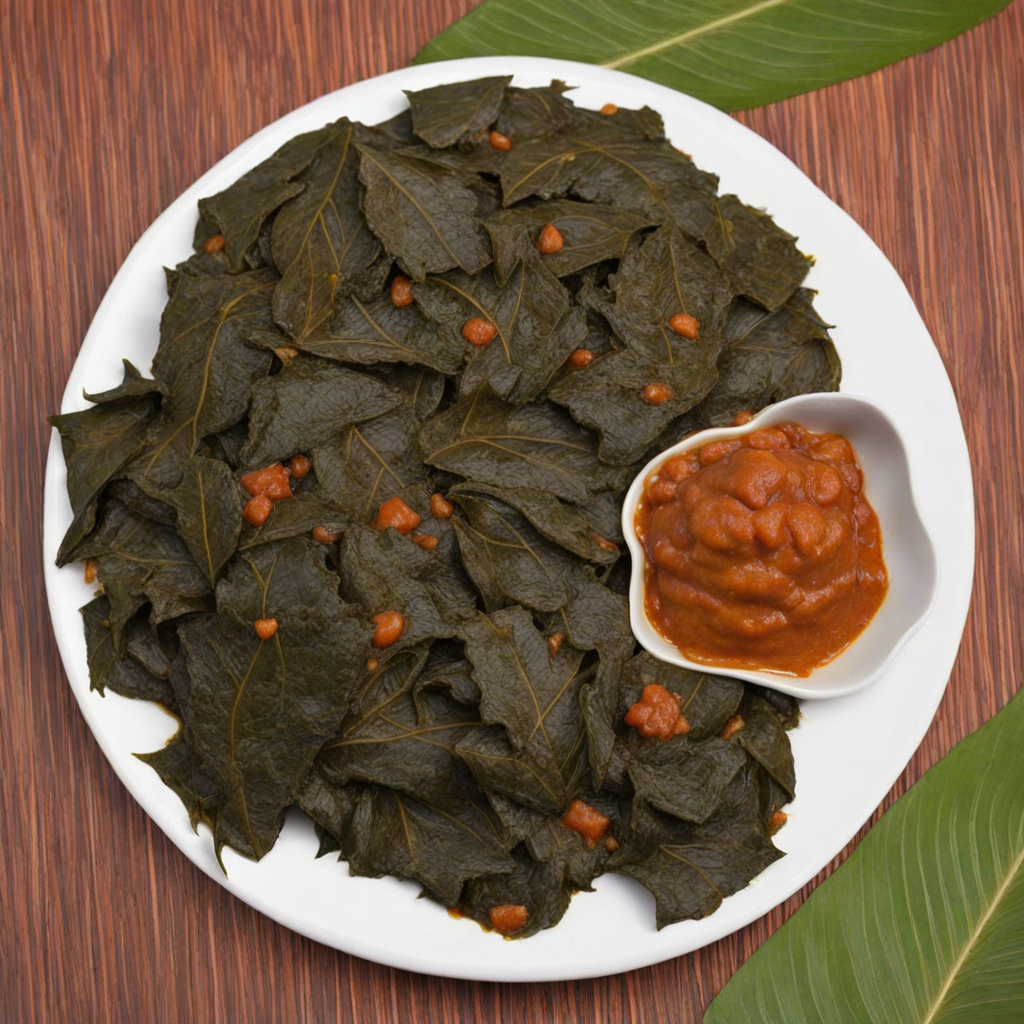Ibihuha
Ibihuha is a traditional Rwandan dish that beautifully encapsulates the essence of the country's rich culinary heritage. This unique delicacy is primarily made using a blend of ingredients such as beans, maize, and various vegetables, all simmered together to create a hearty and nutritious meal. The dish is often seasoned with local spices and herbs, imparting a vibrant flavor profile that reflects the natural bounty of Rwanda's agricultural landscape. The texture is a delightful combination of soft beans and tender vegetables, making it a comforting choice for both lunch and dinner. One of the standout features of Ibihuha is its versatility; it can be served as a standalone dish or paired with accompaniments like grilled meats, plantains, or a fresh salad. The preparation process typically involves slow-cooking the ingredients, allowing the flavors to meld harmoniously over time. This method not only enhances the taste but also preserves the nutritional value of the components, making Ibihuha a wholesome option for those seeking healthy meal alternatives. The communal aspect of sharing this dish with family and friends makes it a popular choice during gatherings and celebrations. The experience of tasting Ibihuha is truly an invitation to explore the warmth of Rwandan hospitality. Each bite offers a sense of comfort and satisfaction, as the dish is not only nourishing but also steeped in cultural significance. Whether you are a seasoned culinary explorer or a newcomer to Rwandan cuisine, Ibihuha promises to deliver a memorable experience that showcases the flavors and traditions of this beautiful East African nation, leaving you eager to learn more about its diverse food culture.
How It Became This Dish
The History and Cultural Significance of Ibihuha in Rwanda #### Origins of Ibihuha Ibihuha, a traditional Rwandan dish, has its roots deeply embedded in the agricultural practices and culinary traditions of the Rwandan people. The name itself derives from the Kinyarwanda language, with "ibi" meaning "these" and "huha" referring to "the small leaves" of certain plants, particularly the leaves of the sweet potato or cassava. These ingredients have been cultivated in Rwanda for centuries, reflecting the nation’s agrarian lifestyle and the importance of subsistence farming in Rwandan culture. The origins of Ibihuha can be traced back to pre-colonial Rwanda, where the Tutsi, Hutu, and Twa communities relied heavily on agriculture, growing crops such as beans, maize, sweet potatoes, and cassava. Sweet potatoes, in particular, have been a staple in the Rwandan diet, valued not only for their nutritional benefits but also for their versatility in cooking. The incorporation of these ingredients into a dish like Ibihuha showcases the resourcefulness of the Rwandan people in utilizing local produce to create a nourishing meal. #### Ingredients and Preparation Ibihuha is traditionally made by cooking sweet potato leaves, often mixed with other local greens, such as amaranth or pumpkin leaves. The leaves are typically boiled or steamed and then seasoned with a variety of ingredients, including onions, tomatoes, and sometimes peanuts or groundnut paste for added flavor and richness. The dish can be served as a side or main course, often accompanied by a staple starch, such as ugali (a stiff porridge made from maize flour) or rice. The preparation of Ibihuha not only highlights the importance of local ingredients but also reflects the communal practices associated with food in Rwandan culture. Cooking is often a communal activity, where families gather to prepare meals together, sharing stories and fostering connections. The preparation of Ibihuha is no exception, as the gathering of fresh greens from the fields can involve family members or neighbors working together. #### Cultural Significance Ibihuha holds a significant place in Rwandan culture, representing more than just a meal. It is emblematic of the Rwandan ethos of sustainability and respect for the land. The dish exemplifies the practice of eating seasonally and locally, a concept that resonates strongly in contemporary discussions about food security and environmental stewardship. Moreover, Ibihuha is often associated with traditional ceremonies and communal gatherings, such as weddings, harvest festivals, and family reunions. During these events, the preparation and sharing of Ibihuha symbolize unity and togetherness, reinforcing social bonds within the community. The dish also serves as a reminder of the importance of agricultural heritage, as it celebrates the labor and skills of farmers who cultivate the land. In Rwandan society, food is a key element of identity. Ibihuha, with its origins rooted in the land and its ingredients reflecting local agricultural practices, embodies the essence of Rwandan culture. The dish is a source of pride for many Rwandans, as it connects them to their ancestors and their history of resilience and resourcefulness. #### Development Over Time As Rwanda has undergone significant changes over the years, particularly following the tragic events of the 1994 genocide, the significance of Ibihuha has evolved. In the aftermath of the genocide, the country faced the challenge of rebuilding not only its infrastructure but also its social fabric. Food became a means of healing and reconciliation, with traditional dishes like Ibihuha serving as a reminder of the shared heritage and cultural identity that transcended the divisions of the past. In recent years, there has been a resurgence of interest in traditional Rwandan cuisine, with chefs and home cooks alike embracing dishes like Ibihuha as a way to promote cultural heritage. Efforts to preserve and promote Rwandan culinary traditions have led to the establishment of culinary festivals and initiatives aimed at educating the younger generation about the importance of traditional foods. This revival is not merely nostalgic; it is a conscious effort to strengthen national identity and pride in Rwandan culture. Additionally, the global interest in healthy and sustainable eating has brought renewed attention to dishes like Ibihuha. The use of locally sourced, nutrient-rich ingredients aligns with contemporary dietary trends, making Ibihuha a relevant dish not just in Rwanda, but also in the broader context of global cuisine. The increasing popularity of plant-based diets has further highlighted the value of Ibihuha, as it is inherently vegetarian and packed with vitamins and minerals. #### Conclusion Ibihuha is more than just a dish; it is a symbol of Rwanda’s rich agricultural heritage, a testament to the resilience of its people, and a reflection of the cultural values that permeate Rwandan society. From its origins in pre-colonial times to its role in contemporary culinary practices, Ibihuha encapsulates the spirit of community, sustainability, and identity that defines Rwandan culture. As Rwanda continues to evolve, Ibihuha stands as a reminder of the importance of preserving culinary traditions and the stories they tell. It serves as a bridge between the past and the future, connecting generations through the shared experience of food. Whether enjoyed at a family gathering or in a bustling restaurant, Ibihuha remains a beloved dish that nourishes both the body and the soul, embodying the essence of what it means to be Rwandan.
You may like
Discover local flavors from Rwanda







